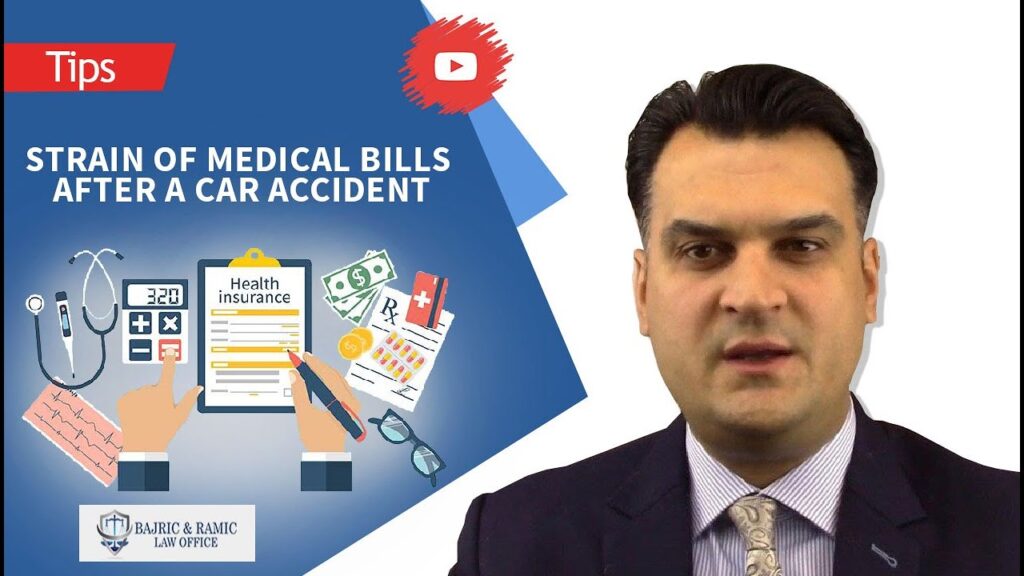Introduction – The First Question That Pops Up
Let’s be real—car accidents suck. They’re stressful, scary, and worst of all? They leave you with a mountain of medical bills. So, the big question is: Who’s paying for all this? Is it you, your insurance, the other driver’s insurance… or are you stuck in billing limbo?
Let’s break it all down, no legal jargon, no fluff. Just answers.

Understanding the Chaos – Medical Bills After a Crash
The Immediate Aftermath – Who Gets the First Bill?
Right after an accident, if you’re taken to the hospital, the ER, the ambulance—guess what? The bill usually goes to you. Yeah, even if it wasn’t your fault.
Hospitals don’t wait around to figure out liability. They want to get paid. So, they send the bill directly to whoever received the treatment—you.
The Role of Emergency Medical Services (EMS)
EMS and ambulance rides aren’t free. That ride can cost $500 to $3,000, and you’ll get a separate bill for it. They don’t care who caused the crash. You’re the patient, you’re the one billed.

Who’s Liable? Figuring Out Fault First
At-Fault vs. No-Fault States – Big Difference
Here’s where things split depending on where you live.
No-Fault States Explained
In no-fault states, your own insurance covers your medical bills up to a certain limit, no matter who caused the accident. This is called Personal Injury Protection (PIP).
States like Florida, Michigan, and New York follow this model.
At-Fault States Explained
In at-fault states, the driver who caused the accident is responsible for paying damages. But don’t expect the other guy’s insurance to cut a check the next day. It takes time. Sometimes months.
In the meantime? You’re on the hook.
Insurance to the Rescue (Sort Of)
Your Auto Insurance – What It Covers
If you have MedPay or PIP coverage, that kicks in first. It can cover ER visits, surgery, rehab, and even funeral costs. But it comes with limits—usually $5,000 to $10,000.
If you don’t have that? Then it’s up to your health insurance—assuming you have it.
The Other Driver’s Insurance – Can You Tap Into It?
Yes, but only after they’ve accepted fault and settled. Until then, you’re in limbo. You might need to pay out-of-pocket, then get reimbursed later.
What If You Don’t Have Health Insurance?
It gets tricky.
Hospital Liens – Sneaky but Legal
Hospitals might slap a lien on your future settlement. That means when (or if) you get paid from the at-fault driver’s insurance, they get paid first.
It’s legal. And yeah, it can eat up a big chunk of your settlement if you’re not careful.
Health Insurance – What It Covers (and What It Doesn’t)
Your health insurance will usually cover:
- ER visits
- Surgery
- Follow-up care
- Prescription meds
But you’ll still owe copays, deductibles, and co-insurance. Plus, your provider may seek reimbursement from your settlement later through subrogation (another fancy word for “pay us back”).
MedPay & PIP – What They Are and How They Help
- MedPay: Optional add-on to auto insurance. Covers medical bills regardless of fault.
- PIP: Required in no-fault states. Covers medical costs, lost wages, and more.
Both kick in before health insurance and are worth adding if you want to avoid headaches later.

When Lawyers Step In – Why Legal Help Matters
Getting a lawyer after a crash isn’t just about suing. It’s about protecting your money.
Settlements and Medical Bills – How It Connects
A good attorney can:
- Delay collections
- Negotiate medical bills
- Maximize your settlement
They’ll also handle those pesky hospital liens and insurance adjusters trying to lowball you.
Don’t Skip This – Steps to Protect Yourself Financially
Collecting and Saving Every Bill & Record
Keep everything. Every receipt, bill, test result, prescription—it’s proof and can help you get reimbursed.
Contacting Insurance ASAP
Report the accident to your insurer, even if it wasn’t your fault. Some policies require it or they won’t pay.
Knowing What NOT to Say to Adjusters
Don’t say, “I’m fine” or “It was my fault,” even casually. Adjusters are trained to use your words against you.
Conclusion – Wrapping It All Up
After a car accident, figuring out who pays medical bills is anything but simple. It depends on your state, insurance coverage, and whether someone else was at fault.
In the end, you may have to pay upfront, even if someone else caused the wreck. But with the right coverage—and sometimes legal help—you can get reimbursed and protect your financial future.
FAQs
1. What’s the first insurance I should use after an accident?
Start with MedPay or PIP if you have it. If not, your health insurance steps in.
2. Can the hospital refuse to treat me if I can’t pay?
No. They’re legally required to treat emergency conditions. But they’ll bill you afterward.
3. What happens if the other driver is uninsured?
If you have Uninsured Motorist coverage, it can help. If not, you may have to sue them directly.
4. Can I delay paying medical bills until after a settlement?
Sometimes. But hospitals may place a lien, or send you to collections if you wait too long.
5. Is it worth hiring a lawyer for a car accident?
Yes—especially if injuries are serious. A lawyer can often get you more money and handle the paperwork and negotiations.